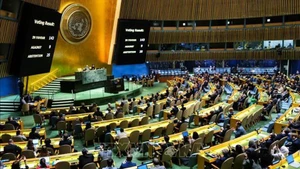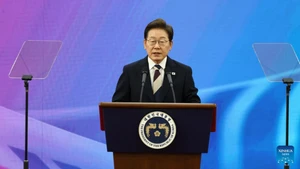A series of trade agreements reached between various countries and the US has helped reduce the risk of escalating global trade tensions. Alongside the WTO’s ongoing reform efforts, trade is expected to remain a key driver of global economic growth.
In recent years, the international trading system has faced major challenges, marked by imbalances and unpredictable instabilities, such as unilateral tariff policies that have disrupted supply chains and global investment activities. This year, the WTO has revised its forecasts for trade and economic growth several times, an unusual move, due to persistent uncertainties.
As trade volatility deepens further, many have urged WTO members to uphold the core values and principles of the multilateral trading system and to accelerate institutional reforms, amid growing concerns that “power-based” trade relations are undermining the rules-based multilateral order.
Calls for greater reform and stronger support for the multilateral trading system come at a time when the global economy and trade are undergoing complex changes, with rising unilateralism and protectionism creating new risks.
Although the system is designed to deliver tangible benefits to people worldwide, plans by major economies to introduce new tariffs have pushed it into a difficult period, threatening economic growth, investment, and development progress, particularly in the most vulnerable economies.
Uncertainties in trade and investment have become serious obstacles to economic growth. Many low-income and vulnerable countries are facing mounting challenges due to worsening external conditions. Unilateral tariff measures have weakened the foundation of multilateral rules, significantly increasing costs for businesses and consumers, while impeding economic and social development in fragile developing economies.
However, as global free trade experiences significant turbulence, the cautious responses of many countries to new US tariff measures have helped ease trade tensions in 2025. Coupled with the growth potential of the artificial intelligence sector and stronger trade linkages among nations, especially emerging economies, global merchandise trade has received a boost.
According to the latest WTO report, global trade growth this year is projected at 2.4%, substantially higher than the 0.9% forecast issued in August. Meanwhile, bilateral and framework trade agreements concluded by the US with countries such as Mexico, Malaysia, and China have helped defuse trade tensions.
Maintaining and stabilising US-China economic and trade relations, which have the greatest impact on the world economy, not only serves the fundamental interests of both countries but also meets the expectations of the international community, contributing to the stability of the global trading system.
Nations are stepping up cooperation and market connectivity to jointly address challenges and foster development, while seeking greater breakthroughs in areas such as market access, government procurement, and the digital and green sectors, as well as industrial and supply chains. These are crucial factors in strengthening the multilateral trading system.
WTO leaders and experts have emphasised that current disruptions in the global trading system serve as a reminder for nations to reshape trade and build a stronger foundation for shared global prosperity.
While the need for trade reform is evident, dismantling barriers within the multilateral trading system can only be achieved through dialogue and negotiation.
The recent trade agreements between the US and other countries are a vivid example. Addressing trade imbalances, concentrated benefits, and outdated rules requires cooperation and consensus among nations to ensure the continued flow of trade and global economic growth.
















